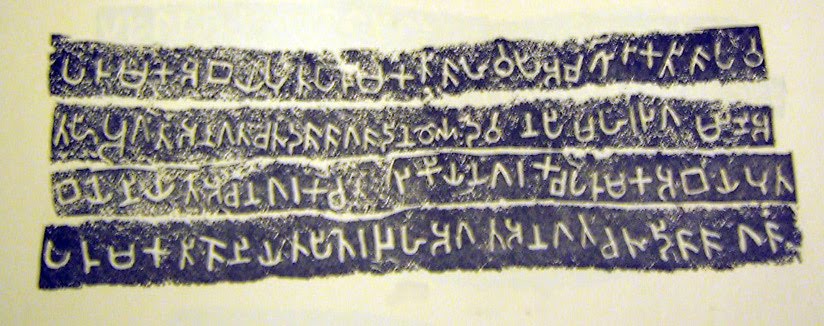The following terms; Bonds and neighbours are independent, distinctive,
unique components, even in its literal meaning other than the deepest meanings
of the terms. But, together it makes a huge difference to any meaningful
sentence you write or say, when you speak of something related to its meaning. ‘For example if you say, ‘the bonded
neighbours’ that gives an even more total meaning.
The Bond or the Bandhan in Hindi, (?) Bandhanaya
nkaOkh /
ne|Su is a very important term in its social and
cultural aspects other than in any other specific analysis.
Dore aiya ‘s
family is the our very nearest neighbor of our Kandy house, the Mahagedara, the
house where we, the siblings, all lived together for a longer period before we
all split in to various areas of the country. For example my sister and I came
to Colombo and these days lives in Nugegoda my youngest brother lives in
Madagalla in Kurunegala District with his wife since about half a year. I am
not totally aware of his neighbours in the immediate vicinity but I know most
the neighbours are relatives. So the bond, Bandhan or the Sambandaya (connection) is heavy there I believe because they are
not just the neigbours but the relatives as well.
The bond that
neighbours maintain with each other may differ to each other depending on the nature
of the bond that they maintain wit. If the bond is long lasted one or if it is an
old bond, often the neigubours maintain much closer relationship. The facets of
the relationships of naigbours again, we can think of many. Some neighbours
live closer but maintains a distanced relationship but some neigbours lives closer
to each other and the relationship too is a closer one.
Depending on
the Bandhan that we maintain with
each other ‘we request things from our neigbours’, suggest, asks, opposes, help
each other but never interfere their family things inaccurately. My father or
the Dore aiya never had Ethical Power
for that categorical decision making. I am thinking whether my relatives had
such power NO I guess.
My father
until he died was the sole decision maker of the family and none of us go and
ask Dore aiya for permission for any
of the important matters of the Family because he is not the head of Household
of our family. Even now there is no way
that my mother allows anyone to interfere any of the family matters or take
actions or take decisions on behalf of my family because now after my father died
my mother is the head of Household though as adults and independent individuals
we take our own decisions personally.
In most the family
dealings I know that between family members many discussions take place before
something taking in to the ear of the head of household. Especially in this region
we live (‘Asian part of the world) the household settings have not totally
changed or liberated from the hands of the head of the household. We as Sri Lankans
still do not take our matters major or even minor to the ear of the neighbor asking
to take decisions. I hope even in India as Indians, still gives a fullest
respect to the head of household when it comes to decision making of the family
unit. Sri Lanka and India as the societies that have established under patriarchal
norms and values, features, ever since the societies, the countries known to
outside world have not changed in Family structure / frame work.
Discussions between
family members give fruitful results when it comes to something to be decided. I
guess I forgot to write I believe, in both the societies (pardon me I have to
forget the other societies in the region for a moment) decisions are taken
after few rounds of discussions with its family members.
I do not say
that every master decision that a family take even after a loads of rounds of
discussions are always 100% right or become successful because that involves ‘human
capacities and understanding and in a family no surveys done before taking decisions
solely depend on TRUST AND STRENGTH. The decisions taken with regard to main
society and by a responsible authority/ party gives a different picture and are
totally different from the decisions taken by a head of household of a certain
family unit. BUT I believe if you take the SOLE MEANING OF TAKING THE FAMILY DECISIONS WITHIN THE UNIT there is no difference whether it’s a huge
organization or a institute, country ITS MEMBERS AUTHORIZED HAS THE SOLE RIGHT
TO TAKE THE DECISION ACCURATELY THOUGH THEY CAN WELCOME ANY SUGGESTIONS. The
history of our country revealed the percentage of discussions that became successful
and the decisions that were taken totally accurate or successful way AND THE
FAILURES.
I believe the decision
taken by the emperor Ashoka FOR INSTANCE to share the philosophy, the Buddhism
with his neighbor country that is us SRI LANKA was all time successful decision
and that was in the list of historical decisions any can view. That was worth
not only culturally, religiously, or socially even politically because that decision
which was taken by the emperor back then, strengthened the bond between the two
countries.
That was not
in the near past. Let’s analyze an example from the recent past (1987) the
decision taken by the Indian Government to intermediate the ethnic struggle of
Sri Lanka that the whole country suffered for more than 03 decades.
I am not a
person who have studied the INDO LANKA
ACCORD which was signed between Mr. Rajiv Gandhi and Ex President Mr. J.R.
Jayawardena in 29th July 1987, 100% but as a student who like to
study all the historical agreements, political or cultural decisions made
between certain parties or any parties related to any specific matters of the
country very including the Ethnic conflict, according to most that is the term
used to describe its facets I like to analyze a quote respecting my own knowledge
, level of understanding without really saying anything about my personal views
about the accord.
We all know
the result of the Accord signed back in 1987 but let me quote what Mr. J N
Dixit has told about the agreement signed. I guess as the views of an Indian
citizen, it is important to weigh what Mr. Dixit’s has shared and revealed and
his views with this regard. If you think that Sri Lankans analysis or views with
regard to the accord partial or shows a different picture, one can weigh the quote
below, after reading it.
“The
Indo Lanka Agreement failed because Rajiv Gandhi took the decision to sign the
agreement on information and advice conveyed to him by his advisors, which in
retrospect were inaccurate and over optimistic”
(Negotiating
Peace in Sri Lanka: Efforts, Failures and Lessons / Volume One, 2nd Edition
Edited by Dr. Kumar Rupesinghe)
Lets turn in
to decisions of any other structure / institution of any possibilities of rates
or percentage or success and failures again according to my personal understanding.
According to
my personal views
-
How you get information on something is thoroughly
important
-
How you weigh the information you collate or get
via what so ever sources is important
-
How you
Pre test or pro - test the information you get or how you verify the
information you get is important
-
If you think that something became failure like
above what caused for them to provide inaccurate and over optimistic advice or
information to any party involved or that expect advice / information
-
What is the better way to differentiate the impartial
facts and partial facts, on what basis
-
If you take a survey data collection parties /
enumerators ‘what background / qualifications they hold’ is important. For
instance for a medical survey that are very rich in medical terms and
understanding an enumerator who has a sociological background may disqualify to
collate information because he or she may less or no aware of the terms and
facts that are very important to know before collating information but an
enumerator with a medical knowledge background suits
-
I guess it is no harm at all to weigh the ‘
IMPACTS’ of what ever decision you take
For example; impacts short term, long term
And I know that some times not all the
neighbours are well wishers or benefactors often you find strangers or
individuals that may not expect your success but expect some benefit for them.
careful when you choose sources of help.
May you all
become wise not fools! Have an insight full life ahead!



No comments:
Post a Comment